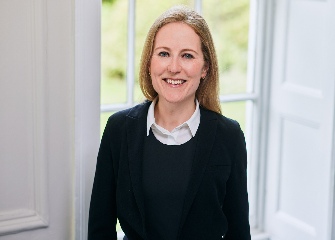
©Copyright Legal Women Limited 2020 - 2024




Website
Equity v equality? Putting the Equity into ED&I
 As lawyers we are very familiar with the concept of equity and its particular meaning in the Chancery or commercial context, but what does it mean in practice, day to day, when we seek to tackle and engage with issues around equality, diversity and inclusion? Its genesis is the idea that it is the cure for the defects caused by the generality of the law. Therefore, equity isn’t just a “nice-to-have,” it is the linchpin of a fairer society, not just for women, but for everyone. Accordingly, it needs to be part of “business as usual”, as a way of ensuring balance and redress and to be progressive and inclusive we need to take action on this in our daily work. Equity is an important concept because it takes into account a person’s unique circumstances, so that their treatment is adjusted according to their needs and the end result is then equal. By creating better equity and better opportunities for everyone I firmly believe we are opening up more doors for everyone, men and women.
As lawyers we are very familiar with the concept of equity and its particular meaning in the Chancery or commercial context, but what does it mean in practice, day to day, when we seek to tackle and engage with issues around equality, diversity and inclusion? Its genesis is the idea that it is the cure for the defects caused by the generality of the law. Therefore, equity isn’t just a “nice-to-have,” it is the linchpin of a fairer society, not just for women, but for everyone. Accordingly, it needs to be part of “business as usual”, as a way of ensuring balance and redress and to be progressive and inclusive we need to take action on this in our daily work. Equity is an important concept because it takes into account a person’s unique circumstances, so that their treatment is adjusted according to their needs and the end result is then equal. By creating better equity and better opportunities for everyone I firmly believe we are opening up more doors for everyone, men and women.
Equity and the Legal Profession
Things have moved on dramatically since the 1970s when a lack of washroom facilities for women in the workplace was sometimes used as a pretext not to hire female lawyers. The perseverance of the few women in the profession at the time paved the way for more women to take up a legal career. Thankfully there are washroom facilities for women in law firms and chambers up and down the country today, but there is still a need for action and a need to embrace equity, despite the progress that has been made.
I feel passionately that we need to strive towards a world with better equity for women, and where more generally difference is valued and accepted. We all have an important role in this, regardless of gender. Although a lot has changed for women in law (and in society more generally), there is still much to do in moving towards better gender parity. Striving towards better equity for women is a continuous journey and we all need to take action to make sure that we ensure progress and continue to embrace equity.
Focus on output and outcomes
For women in particular, open communication on topics such as childcare, return to work after extended breaks and flexible working is crucial in maintaining an environment which is fair and welcoming – the focus needs to be on output and outcomes, regardless of who you are and how you work. In my view having a business case for diversity is not negotiable, it’s the right thing for all of us, so that everyone, including those working flexibly can have access to high quality work and the end result is equal.
We all need to think about how we can create better equity in the workplace and how we can encourage and empower women in their careers, in their capacity as care givers or in their own individual unique role or capacity. We also need to think about what action we can take on a personal level, whether at work, home or in some other capacity to support and empower other women on this journey. Each of us needs to be an ambassador on this topic, men and women – and we really do need men to be on board. Too often women’s groups are only attended by women to discuss issues affecting women, but we need men to engage and take action too.
We need male allies
In fact it is crucially important that we have male allies – we need men to listen, to participate in discussions and to take action and contribute to change. We will not be able to foster change by only ever speaking to an audience of women: we need to be allies to each other, men and women, to combat inequality and support diversity, equity and inclusion. I firmly believe we can only make things better by working together on this and ensuring that in pursuit of equality we do not forget the value and place of equity in tailoring individual treatment according to individual needs.
Barrister at 4-5 Gray’s Inn Square.
January 2024